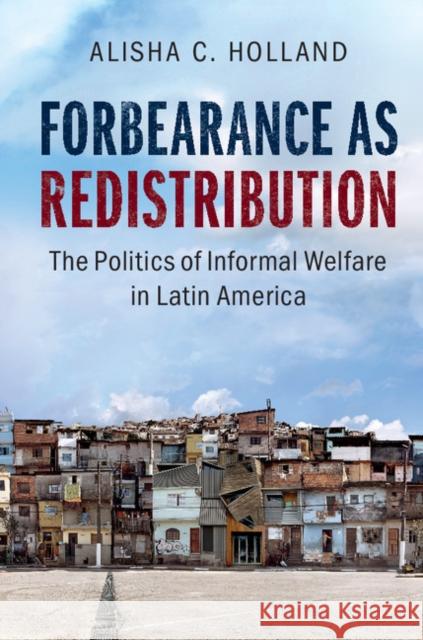Forbearance as Redistribution: The Politics of Informal Welfare in Latin America » książka
topmenu
Forbearance as Redistribution: The Politics of Informal Welfare in Latin America
ISBN-13: 9781107174078 / Angielski / Twarda / 2017 / 400 str.
Forbearance as Redistribution: The Politics of Informal Welfare in Latin America
ISBN-13: 9781107174078 / Angielski / Twarda / 2017 / 400 str.
cena 439,79
(netto: 418,85 VAT: 5%)
Najniższa cena z 30 dni: 416,71
(netto: 418,85 VAT: 5%)
Najniższa cena z 30 dni: 416,71
Termin realizacji zamówienia:
ok. 22 dni roboczych
Bez gwarancji dostawy przed świętami
ok. 22 dni roboczych
Bez gwarancji dostawy przed świętami
Darmowa dostawa!
The book explains why and when laws go unenforced in developing countries.











